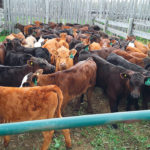WILLIAMS LAKE, B.C. — When it comes to successful beef production, veterinarian Cheryl Waldner recommends the four Bs: body condition scores, balanced mineral programs, biosecurity and bulls. “Nutrition is probably the most important determinant of reproductive performance,” she said at the recent British Columbia Cattlemen’s Association annual meeting in Williams Lake. Waldner, based at Saskatoon’s […] Read more
 Livestock Management
Livestock Management
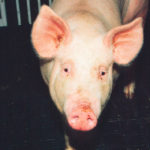
Hog industry split on extent of ASF threat
While some players are convinced African swine fever is inevitable in North America, others aren’t so sure
Is African swine fever inevitably going to infect North America’s swine herd? Experts were split on that during the World Hog Industry Digital Conference, with markets experts considerably more pessimistic than veterinary experts. “The question is which countries break first. You want to be last,” said Jim Long, president of Genesus, the Canada-based global swine […] Read more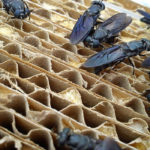
CFIA studies use of insects as livestock feed
Different insects have different properties, and their desirability as a feed source depends on how they are reared
Insects are an important food source for other species in the food chain and they are now being more thoroughly explored as a nutrient source for livestock. The Canadian Food Inspection Agency is studying the safety and efficacy of insect-derived feed ingredients and is accepting public comments on the concept until Aug. 17. “Feed ingredients […] Read more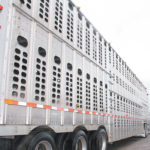
Livestock transportation has seen major improvements
A lot of work has gone into the new transportation regulations. For cattle and bison, previous regulations were working well. Long trailer hauls to packing plants or feedlots in Canada and the United States recorded a success rates of more than 99.9 percent. It’s possible to improve, but a lot of the culture around loading […] Read more
Environmental award winners ‘walk the talk’
MOOSE JAW, Sask. — Randy Stokke didn’t want to say it too loudly, but the ranch he runs with wife, Terry, and their family had good moisture this spring even though it’s located in one of the driest parts of Saskatchewan. The Stokkes run their cattle on about 14,000 acres of mostly crown lease native […] Read more
Keeping out infected feed proves difficult for hog sector
Producers should know where their feed ingredients come from to avoid getting material from regions infected with African swine fever. But finding out is not as easy as one might think. Feed manufacturers in North America are beginning to think more about where they get their ingredients, how the feed is treated, how to minimize […] Read more
PED lessons useful for ASF threat
Porcine epidemic diarrhea was a disaster for thousands of producers but surviving it might have set up the industry to better handle the threat of African swine fever. “We learned a lot the hard way with PED,” said Scott Dee, a leading swine veterinarian from Minnesota, during the Global Hog Industry Virtual Conference. “When we […] Read more
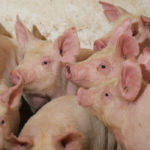
China’s shutout of Canadian meat scrambles global pork flow
WINNIPEG, Manitoba, June 26 (Reuters) – China’s decision to block imports of Canadian meat has set off a global chain reaction in pork trading but it will do little to curb overall demand as a disease ravaging the Chinese hog herd elevates prices, industry experts say. China said on Tuesday it wants the Canadian government […] Read more
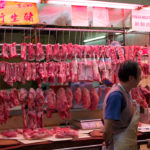
Meat being smuggled into China using bogus Canadian veterinary certificates
OTTAWA, June 26 (Reuters) – Unknown actors are using bogus certificates to smuggle meat into China, Trade Minister Jim Carr said on Wednesday, a day after Beijing halted beef and pork imports citing falsified paperwork. China, which has already blocked imports of Canadian canola seed and product from three pork plants, said on Tuesday it […] Read more

China shows that you can’t count on China – ever
China blocks Canadian pork and beef and proves itself a bad bet for any future relationships
China has now added Canadian pork and beef to its blockade of Canadian agricultural exports, as it continues to bash away at Canada. Canadian farmers will be the biggest losers. It hits them directly. Not only does the physical movement of meat get disrupted, but export prices will be discounted as Canadian product looks to […] Read more

 Livestock Management
Livestock Management